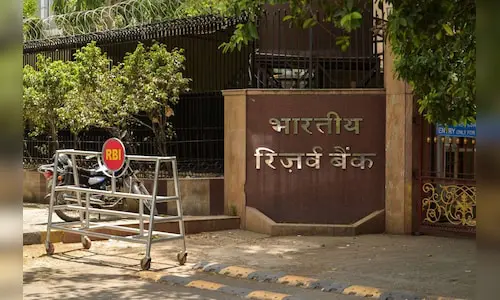Shimla: In a recent address during the National Cooperative Conference in Shimla, Reserve Bank of India (RBI) Governor Sanjay Malhotra highlighted the crucial role of cooperative banks in promoting financial inclusion. He emphasized the need for robust governance, technology adoption, and skilled leadership within these institutions. Malhotra reaffirmed the RBI’s commitment to reforming cooperative banks while ensuring alignment with commercial banking standards.
The Importance of Cooperative Banks in Financial Inclusion
The Reserve Bank of India (RBI) recently held a National Cooperative Conference, where Governor Sanjay Malhotra shed light on the indispensable role of cooperative banks in India’s financial ecosystem. Though smaller in size compared to commercial banks, cooperative banks are pivotal in connecting marginalized communities to formal banking services. Malhotra noted, “Where commercial banks often find it difficult to reach, regional rural cooperative banks and urban cooperative banks are present, serving the bottom of the pyramid.”
Cooperative banks focus on the “last mile” by catering to the financial needs of the underprivileged, thus facilitating financial inclusion. This initiative aligns perfectly with the broader goals of the Indian economy, aimed at empowering all sectors of society.
Sector Performance: Growth and Challenges
The performance metrics of cooperative banks are encouraging. According to Malhotra, these institutions account for advances worth nearly Rs 12 lakh crore, or about 6-6.5% of the total banking system. Over the past five years, the sector has experienced a compound annual growth rate (CAGR) of 7.5% in lending and a robust 10% growth in rural agricultural financing.
Moreover, profitability has soared, with net profits exceeding Rs 10,000 crore. However, the sector grapples with challenges, particularly concerning Non-Performing Assets (NPAs), which, although improved, remain a concern. The gross NPAs have fallen from a peak of 10% in 2021 to approximately 7%.
| Key Performance Indicators | 2018 | 2021 | Current |
|---|---|---|---|
| Total Advances | Rs 10 lakh crore | Rs 12 lakh crore | Rs 12 lakh crore |
| Lending CAGR | N/A | N/A | 7.5% |
| Agricultural Financing Growth | N/A | N/A | 10% |
| Net Profits | N/A | Rs 5,000 crore | Rs 10,000 crore |
| Gross NPAs | 9% | 10% | 7% |
Call for Reforms in Cooperative Banking
Despite the positive growth statistics, Governor Malhotra emphasized the urgent need for reforms in governance, human resource development, technology adoption, and capital raising mechanisms. He stated, “You may be profitable, but without strong governance, institutions cannot sustain.” This highlights that profitability alone is insufficient for long-term survival; sound governance practices are vital.
He urged cooperative banks to adhere strictly to guidelines set by the RBI and NABARD, citing systemic governance as non-negotiable. Furthermore, Malhotra recognized that improving human resources is critical for the sector’s future, underscoring that effective leadership is essential for progress.
Technological Advancements and Capital Challenges
In his address, Malhotra touched on the necessity for digital transformation in cooperative banks, recognizing that modern banking demands convenience and accessibility for customers. Efficient digital platforms can significantly elevate customer service and operational efficiency.
However, he also acknowledged the challenges involved in raising capital within cooperative structures, particularly due to the “one member, one vote” principle. This makes it challenging to attract investors while ensuring that all members have a voice. Malhotra assured participants that the RBI is exploring solutions, including pilot reforms for urban cooperative banks, which may later extend to their rural counterparts.
Strengthening Internal Systems for Greater Transparency
Internal audit, compliance, and inspection are crucial aspects of ensuring stability within cooperative banks. Malhotra urged these institutions to bolster these internal systems to promote transparency and build trust among customers. The RBI strives to align cooperative banks more closely with commercial banks, ultimately allowing them to operate under similar frameworks while eliminating outdated restrictions.
In conclusion, Malhotra reaffirmed the RBI’s commitment to fostering the growth of cooperative banks, emphasizing that their future lies in strong governance, innovation, and dedicated service to the community. As India moves forward in its economic journey, the role of cooperative banks remains pivotal in ensuring an inclusive financial landscape.
The upcoming transformation in cooperative banking is poised to have substantial implications for the Indian economy, demonstrating the RBI’s proactive approach to banking reforms and financial inclusion. As cooperative banks continue to adapt to the evolving landscape, their role in bridging the financial gap for the underserved populations becomes increasingly vital.
Bankerpedia’s Insight 💡
The RBI Governor’s emphasis on cooperative banks highlights their critical role in financial inclusion, especially for marginalized communities. With significant growth in lending and profitability, these banks are vital in a rapidly evolving banking landscape. However, the call for reform in governance, technology, and capital structures is crucial to sustain this momentum. The future of cooperative banks depends on skilled leadership and robust compliance. For individuals, engaging with these institutions can foster greater financial connectivity, helping ensure that banking services reach every segment of society.
What Does This Mean for Me? 🤔
- Salaried Person → Cooperative banks may offer better financial options soon.
- Business Owner → Cooperative banks improve access to financing for businesses.
- Student → Cooperative banks may improve financial access for students.
- Self-employed → Improved access to financing through cooperative banks.
- Homemaker → Easier access to financial services for homemakers.
- Retiree / Senior Citizen → Improved access to banking services and financial inclusion.
- Job Seeker → Cooperative banks may offer new job opportunities soon.
- Farmer / Rural Citizen → Improved access to banking and financial services for farmers.
Research References 📚
- www.indiancooperative.com
- RBI
- SEBI
- Ministry of Finance
- NABARD
- Department of Financial Services (DFS)
- IMF
- World Bank
Loved our Research? ❤️
Bankerpedia turns financial confusion into clarity!
Subscribe to our YouTube channel for unbiased insights, financial literacy & practical banking wisdom.










